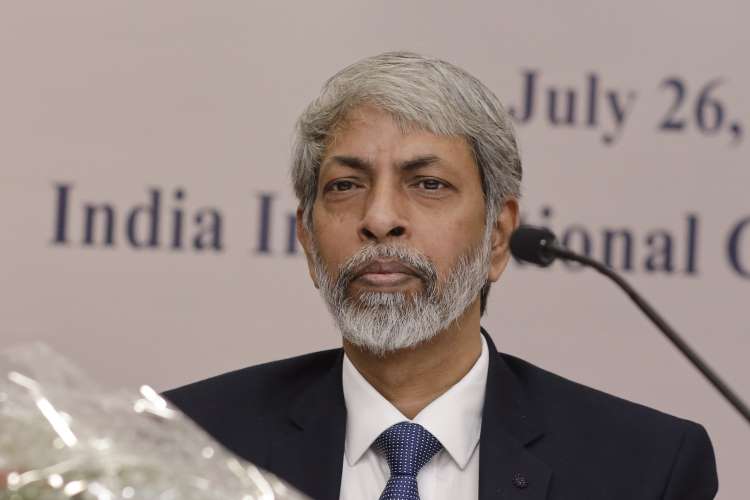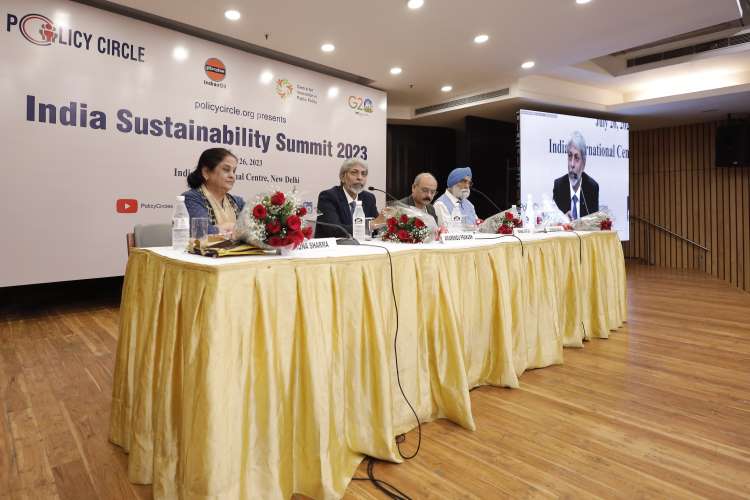
I would like to express my gratitude to the organisers for inviting me to speak on such a relevant topic – sustainability. Sustainability is a matter that affects not just humans but all forms of life on this planet. Yesterday, I came across a news report about ocean currents and their impact on weather and climate change. Scientists predicted a decade ago that by 2080, these currents would significantly affect climate patterns. However, the latest findings suggest it could happen much sooner, perhaps within the next decade.
This reality is upon us, and it reminds me of how climate change was once dismissed as mere pseudoscience. However, events like the pandemic have shown us that unexpected crises can indeed occur. Similarly, climate change has been an agenda for over 30 years, but we are still struggling to address it effectively.
READ I PLI scheme could trigger boom in chemicals, petrochemicals
Industrial growth and sustainability
Now, the question arises: is the industry needed for sustainability? There are debates about industries harming the environment, particularly in relation to deforestation. However, we must also acknowledge that industries are vital for modern living and technological advancements. Creating densely populated, vertical cities could be a solution to reduce encroachment on forests while fulfilling the needs of a growing population. Moreover, we must use science to progress and make industries more sustainable, rather than reverting to pre-industrial methods.
Speaking from the steel industry perspective, I can say that reducing energy consumption is a well-aligned goal. For industries, it is not just about profit but also about reducing costs and energy consumption. In the steel industry, a 1% reduction in energy use makes a significant difference. The industry is also investing in new technologies and efficiency measures to reduce its carbon footprint.

However, achieving sustainability is not the responsibility of just one sector or group. It is a collective effort involving multiple stakeholders: industries, governments, vendors, and citizens alike. To make significant progress, we need nuanced policies that address the concerns of all stakeholders.
For instance, carbon capture, utilisation, and storage (CCUS) is a promising avenue, but its success requires collaboration between different parties. The capture, transportation, and utilisation of carbon all need to work together. Policies must ensure that public concerns are addressed and that we are transparent about the benefits of such initiatives.
As an industry, we are committed to sustainability and have adopted detailed plans to reduce energy intensity and emissions. We collaborate with research institutions and invest in the best available technologies. Our industry is actively working on multiple science and technology projects to support the sustainability agenda.
In fact, practically every single industry today has a sustainability charter. Businesses across various sectors have drawn up detailed and calibrated plans to reduce their energy intensity, not only to improve profitability but also to contribute to a greener world. The ongoing investments in industries like steel aim to leverage the best available technology. For instance, hydrogen is being considered as an alternative to coal, but it is still at an experimental stage. The industry is actively exploring viable alternatives and making the necessary investments to transition towards greener practices.
In the steel industry, energy costs account for a significant portion of overall expenses, as much as 52% in some cases. Therefore, even a marginal reduction in energy consumption translates into substantial cost savings. Embracing energy-efficient practices is not just an option but a necessity, aligning sustainability with the profit motive.
To accelerate the green transition, the Ministry of Steel has formed 13 task forces. These task forces are dedicated to finding innovative solutions to produce so-called green steel with reduced energy consumption and emissions. Their efforts cover a wide range of aspects, from energy efficiency to financing models for sustainable initiatives.
To support these sustainability endeavours, collaboration with academic and research institutes is paramount. The steel industry, among others, has established partnerships with renowned institutions like IIT Bombay, IIT Kharagpur, IMMASTI, and Macon, to name a few. These collaborations aim to test and implement various methods for sustainable production.
However, sustainability is not solely the responsibility of the industry or policymakers. It is a global issue that affects every individual on Earth. Therefore, public consciousness and informed reactions are vital for the success of sustainability initiatives. Policies must consider the concerns and needs of all stakeholders, from industrialists to local communities.
For example, let us consider the challenges related to carbon capture and utilisation. While the technology shows promise, successful implementation relies on a seamless collaboration between entities capturing carbon, transporting it, and utilising it. Policies must facilitate this collaboration and address potential public concerns about infrastructure, land usage, and environmental impact.
Sustainability is not a solitary journey but a collective one, involving all of us. Public awareness and informed responses are crucial in making meaningful progress. Together, we can embark on this journey towards a sustainable future.
(The author is the Chairman of Steel Authority of India Ltd. This article is the edited excerpt of Mr Prakash’s inaugural address at the India Sustainability Summit 2023, organised by Policy Circle at the India International Centre, New Delhi on July 26.)

